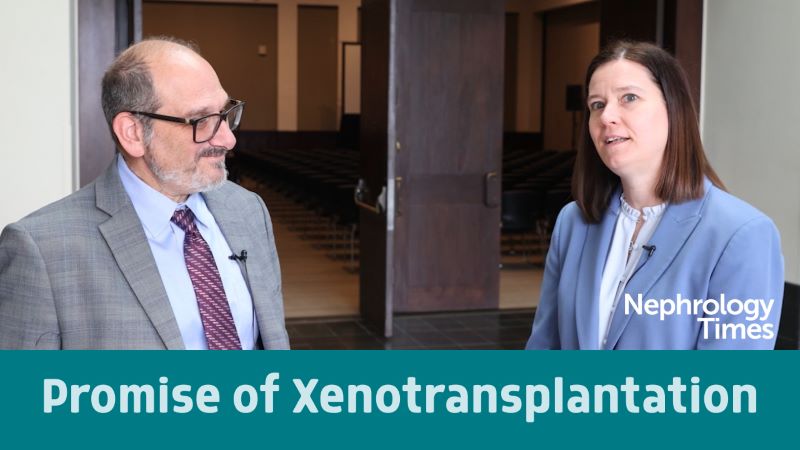
At present, the demand for donor organs is outpacing the supply, creating a need for transplant centers to prioritize which patients are put on the transplant waiting list. According to Brittany N. Hand, PhD, and colleagues, despite legislation such as the Americans With Disabilities Act, Rehabilitation Act, and the Affordable Care Act that prohibit discrimination against people with disabilities, individuals with intellectual and developmental disabilities (IDD) in need of a solid organ transplant continue to face such discrimination. Results of previous studies have suggested that 57% to 89% of surgeons consider moderate-to-profound intellectual disability a contraindication to transplant eligibility.
Reasons cited for excluding individuals with IDD from transplant wait lists include concerns regarding ability to follow posttransplant care, and increased risk for perioperative complications, mortality, or graft failure. However, recent data do not support this premise. Results of most pediatric studies have found similar transplant outcomes among children with and without IDD.
In light of an increasing national momentum to enact and enforce policies to improve equitable access to organ transplant for people with IDD, Dr. Hand et al conducted a retrospective cohort study designed to compare evaluation rates, kidney transplant rates, and transplant outcomes among adults with and without IDD. Results were reported online in JAMA Surgery [doi:10.1001/jamasurg.2022.7753].
The study included all Medicare inpatient and outpatient standard analytical files from 2013 through 2020. The study population included adults with end-stage kidney disease (ESKD) with and without co-occurring IDD, as well as a cohort of kidney transplant recipients with and without IDD.
A total of 413,655 adult Medicare beneficiaries with ESKD were identified. Using propensity-score matching, the cohorts of adults with and without IDD were balanced based on age, sex, race, follow-up duration, and Charlson Comorbidity Index. Data analysis occurred between June 2, 2022, and August 1, 2022.
The propensity score-matched cohort of patients with ESKD included 10,692 adults with IDD and 10,692 adults without IDD. Median age was 55 years and approximately 39% were male. The most common IDD diagnosis was other/unspecified intellectual disability (61.4% of the ODD cohort), followed by cerebral palsy (21.5% of the IDD cohort).
The propensity score-matched kidney transplant recipients cohort included 629 adults with IDD and 629 adults without IDD. Median age was 37 years and approximately 33% were male. Other/unspecified intellectual disability was the IDD diagnosis in approximately 45% of the cohort, and 22.7% had cerebral palsy.
Evaluation by a transplant surgeon was defined by the patient having a medical encounter with a health care professional who performed at least one kidney transplant from 2013 through 2020. In the matched ESKD cohort, 19.9% of adults with IDD (n=2125) were evaluated by a transplant surgeon, compared with 30.6% of adults without IDD (n=3271). Results of multivariable analysis demonstrated that the odds of being evaluated by a transplant surgeon were 54% lower for adults with IDD compared with those without IDD (odds ratio [OR], 0.46; 95% CI, 0.43-0.50).
In the matched cohort with ESKD, 5.9% of adults with IDD (n=633) received a kidney transplant, compared with 12.8% of adults without IDD (n=1367). In multivariable analysis, the odds of receiving a kidney transplant were 62% lower in adults with IDD compared with adults without IDD (OR, 0.38; 95% CI, 0.34-0.42). In addition, in a subset of patients who were evaluated by a transplant surgeon, 29.4% of adults with IDD (n=624) received a transplant compared with 41.2% of adults without IDD (n=1357) who received a transplant. In multivariable analysis, those with IDD had 51% lower odds (OR, 0.49; 95% CI, 0.43-0.55) of receiving a transplant compared with those without IDD.
In the propensity score-matched cohort of transplant recipients, 30.5% (n=383) experienced a perioperative complication, 40.0% (n=503) had a 90-day readmission, 7.7% (n=97) experienced a graft rejection within 1 year, and 1.8% (n=22) experienced a graft failure within 1 year. There was no statistical difference between the groups with and without IDD in the rates of postoperative adverse outcomes. Patients without IDD had similar rates of perioperative mortality (29.4% [n=185] vs 31.6% [n=199]), 90-day readmission (38.8% [n=244] vs 41.2% [n=259]), and graft failure within 1 year (numbers censored due to cell size restrictions). In multivariable analysis, IDD was not a risk factor for perioperative complications, 90-day readmission, or 1-year graft rejection.
The researchers cited some limitations to the study findings, including the possibility that some adults with IDD were excluded from the IDD cohort because they did not have an observed encounter during 2003 through 2020 with an IDD diagnosis, resulting in some adults with IDD incorrectly being included in the control cohort of adults without IDD. Other limitations were lack of data on whether the kidney donors were living or deceased, creating an inability to control for the difference in the analyses; the lack of psychosocial variables indicative of transplant appropriateness in the Medicare data; the inability to examine adequacy of postoperative care and treatment adherence; and the inability to assess the number of beneficiaries (with or without IDD) who chose not to move forward following the transplant evaluation process despite being offered the opportunity to do so.
In conclusion, the authors said. “There is growing national momentum to enact and enforce policies to improve equitable access to organ transplant for people with IDD and other disabilities. Like peers without IDD, some adults with IDD may not be strong candidates for transplant. However, adults with IDD deserve (and legally have the right to) equal access to evaluation and full holistic consideration as to whether they would be good transplant candidates. Our findings show that adults with IDD were significantly less likely to be evaluated for or receive kidney transplants than propensity score-matched peers without IDD. Using the largest US cohort of adult transplant recipients with IDD to date, we found that perioperative, 90-day, and 1-year kidney transplant outcomes were similar for adults with and without IDD and underscore the urgent need for antidiscrimination initiatives to promote the receipt of equitable care for this population.”
Takeaway Points
- Researchers reported results of a retrospective cohort study comparing rates of kidney transplant and transplant-specific outcomes between groups of adults with end-stage kidney disease with and without co-occurring intellectual and developmental disabilities (IDD).
- The rates of evaluation for kidney transplant by a transplant surgeon were lower in the cohort with IDD than in the cohort without IDD: 19.9% versus 30.6%, respectively. The odds of being evaluated by a transplant surgeon were 54% lower for adults with IDD.
- The rates of receipt of a kidney transplant were lower among adults with IDD than among adults without IDD (5.9% vs 12.8%, respectively). The odds of receiving a transplant were 62% lower among adults with IDD.
Source: JAMA Surgery







 © 2025 Mashup Media, LLC, a Formedics Property. All Rights Reserved.
© 2025 Mashup Media, LLC, a Formedics Property. All Rights Reserved.